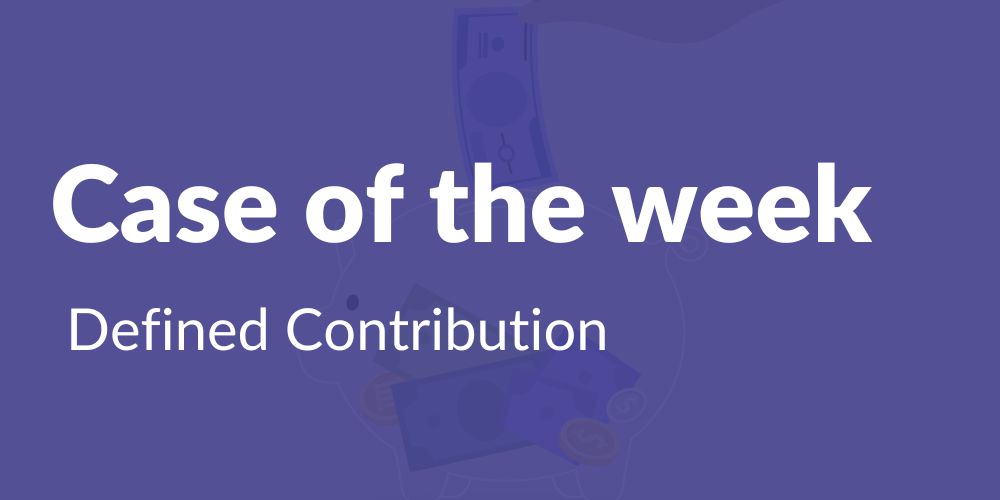
What to Correct under the Voluntary Fiduciary Correction Program
Unsure of when to suggest that clients use the Department of Labor’s (DOL’s) Voluntary Fiduciary Correction Program (VFCP) to correct plan errors? In this Case of the Week, we'll answer that question.
Welcome to the Retirement Learning Center’s (RLC) Case of the Week. Our ERISA consultants regularly receive calls from financial advisors on a broad array of technical topics related to IRAs, qualified retirement plans and other types of retirement savings and income plans, including nonqualified plans, stock options, Social Security and Medicare. This is where we highlight the most relevant topics affecting your business. A recent call with a financial advisor in Illinois is representative of a common question on plan corrections.
“I’m unsure of when to suggest my client use the Department of Labor’s (DOL’s) Voluntary Fiduciary Correction Program (VFCP) to correct plan errors. Can you shed more light on the program?”
Highlight of the Discussion
The DOL’s VFC Program allows plan officials to voluntarily correct 19 specific transactions that are prohibited under the Employee Retirement Income Security Act of 1974 (ERISA). Corrective remedies are prescribed for the following fiduciary violations involving employee benefit plans:
Delinquent Participant Contributions and Participant Loan Repayments to Pension Plans
Delinquent Participant Contributions to Insured Welfare Plans
Delinquent Participant Contributions to Welfare Plan Trusts
Fair Market Interest Rate Loans to Parties in Interest
Below Market Interest Rate Loans to Parties in Interest
Below Market Interest Rate Loans to Non-Parties in Interest
Below Market Interest Rate Loans Due to Delay in Perfecting Security Interest
Participant Loans Failing to Comply with Plan Provisions for Amount, Duration, or Level Amortization
Defaulted Participant Loans
Purchase of Assets by Plans from Parties in Interest
Sale of Assets by Plans to Parties in Interest
Sale and Leaseback of Property to Sponsoring Employers
Purchase of Assets from Non-Parties in Interest at More Than Fair Market Value
Sale of Assets to Non-Parties in Interest at Less Than Fair Market Value
Holding of an Illiquid Asset Previously Purchased by Plan
Benefit Payments Based on Improper Valuation of Plan Assets
Payment of Duplicate, Excessive, or Unnecessary Compensation
Improper Payment of Expenses by Plan
Payment of Dual Compensation to Plan Fiduciaries
Through the VFCP, the DOL encourages the correction of ERISA violations by providing significant incentives for fiduciaries and others to self-correct. The VFCP allows plan officials who have identified certain ERISA violations to remedy the breaches and voluntarily report the violations without becoming the subject of an enforcement action. In FY 2023, the VFCP received 1,192 applications resulting in the recovery of nearly $84 million for plan participants.1 A successful application results in the receipt of a No Action Letter that states, in part, “Because you have taken the above-described corrective action that is consistent with the requirements of the VFCP, EBSA will take no civil enforcement action against you with respect to this breach.”
The DOL wants to help plan fiduciaries take advantage of the program and makes available helpful online information such as frequently asked questions, tools (including an online calculator and model application form) and checklist. There is even a Prohibited Transaction Exemption (PTE) 2002-51 that provides relief from the 15 percent IRS excise tax for six of the 19 transactions (in bold in the list). (See a related Case of the Week VFCP and PTE 2002-51).
Conclusion
The DOL encourages the correction of ERISA violations through the VFCP by providing significant incentives and help for fiduciaries and others to self-correct. The DOL’s VFCP allows plan officials to voluntarily correct 19 specific prohibited transactions. (PTE) 2002-51 provides relief from the IRS excise tax for six of the 19 transactions.
1 DOL Fact Sheet, “EBSA Restores Over $1.4 Billion to Employee Benefit Plans, Participants,” 2024
